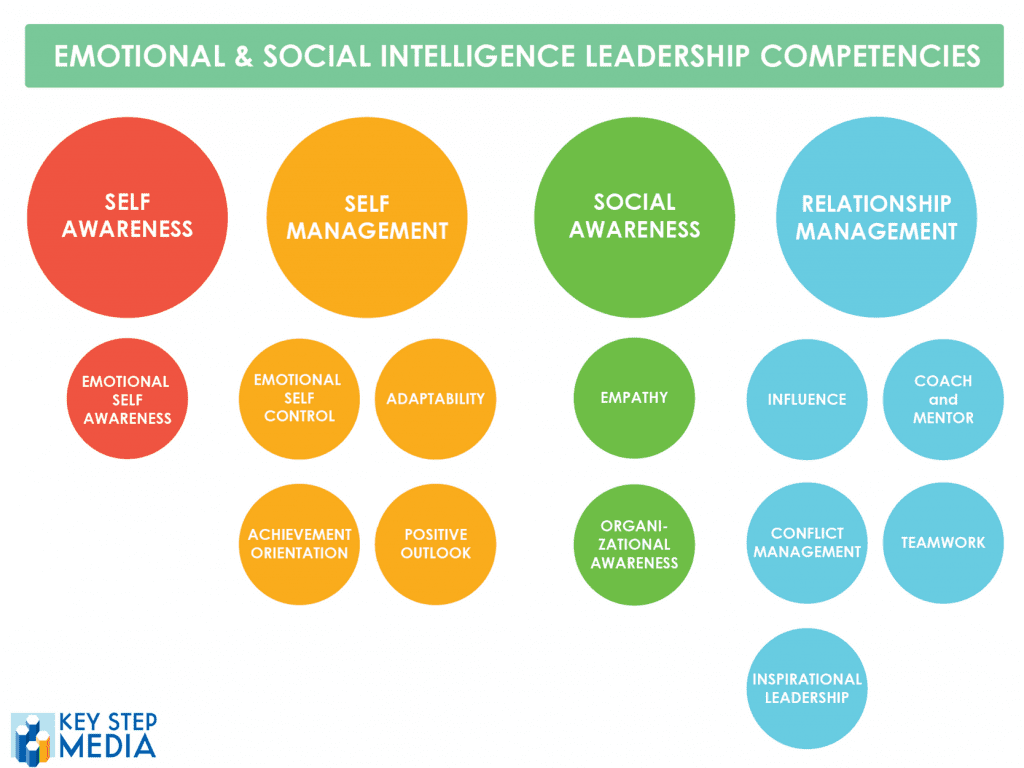Using Emotional Intelligence as a Coach
As a coach, you’ve heard for years about emotional intelligence (EI). There are several models of EI; mine include the ability to recognize our feelings and those of other people, to manage our emotions and actions, and to skillfully interact with those around us. People with strengths in EI maintain emotional balance, even amid difficult situations. They understand unspoken emotions and dynamics among individuals or groups. And they cultivate positive relationships personally and professionally. All that makes an effective leader, team member—or parent and spouse for that matter.
Conversely, people with deficits in an area of EI have a hard time at work and in their lives. The lack can make it difficult to achieve goals, let alone lead others effectively. For instance, people with deficits in emotional self-control readily lose their temper and lash out at others, especially under stress. Leaders who lack empathy can’t effectively relate to their direct reports. Anyone lacking empathy will struggle to form meaningful relationships.
The Emotional and Social Intelligence Leadership Competencies model—a framework of EI I developed with Richard Boyatzis of Case Western Reserve University’s Weatherhead School of Management—consists of 12 learnable competencies within four domains. These competencies distinguish outstanding leaders from those with average abilities in their field. 
Unlike IQ, EI is not one simple score. Your—or your clients’—abilities across the 12 competencies combine to create a comprehensive emotional intelligence profile. A 360-degree assessment is the best way to understand someone’s EI profile. It accounts for the multifaceted nature of EI by including the person’s self-perceptions as well as the perspectives of people they work with. Sometimes family and friends also weigh in on someone’s EI profile.
As a coach, you know that the feedback from people who know you well lets you recognize gaps between your self-awareness and others’ perceptions of you. This lets you spotlight your limitations, as well as strengths, and gives you potential targets for strengthening your emotional intelligence. An accurate understanding of our strengths and limitations can motivate steps for development of emotional intelligence. After all, EI is a set of learned and learnable skills, not a fixed trait.
Start with Yourself
In order to effectively coach others for EI, you might do well to first foster the competencies within yourself. Great coaches apply emotional intelligence throughout their work: They remain calm in difficult situations, with emotional balance. They rely on empathy to understand their clients’ perspectives and give on-target, individualized feedback. They have a genuine interest in helping clients find growth opportunities—an essential part of the coach and mentor competency you see in the model above.
Some simple practices can aid your personal development of EI. Self-reflection, such as through journaling, helps us better recognize our emotions and their impact on us. This is critical for a range of competencies, including emotional self-awareness and emotional balance. Mindfulness meditation trains our brains to focus and ignore distractions, an ability which underlies all of the competencies, and an invaluable asset in working to strengthen any competence. When we can attune ourselves to the present moment, we become more present: better listeners and leaders.
Explore EI in Your Coaching
You have many choices when it comes to 360 assessments and evaluating a person’s EI. I recommend administering a 360 assessment, such as the ESCI-360 (the Emotional and Social Competency Inventory), which I and Richard Boyatzis co-developed with Korn Ferry Hay Group, to evaluate the entire range of key EI leadership competencies. During the debrief, you can frame gaps between self and other ratings as “news to use,” guiding your client to identify their desired areas for growth. Ideally, you can help clients cultivate competencies that align with their goals.
For example, some clients may excel in the self-awareness and self-management domains but want to improve their social awareness and relationship management to take on a leadership role. This is often the case when people have been outstanding individual contributors and get promoted to head a team, group or division. Now the strengths that made them so good on their own are largely irrelevant to their new role as leader, and they flounder. A software developer may be at the top of her game, but she’ll need to cultivate competencies like influence and conflict management to operate effectively as a team leader.
Better than offering advice, you can help your client foster self-awareness to recognize their emotions, habits and triggers. When you notice a pattern in a client’s perceptions and actions, bring it to their attention kindly to help them understand where they’re getting stuck. When they have a difficult day and fall back on old habits, you can help them get back on track and turn a perceived failure into a learning opportunity.
By beginning with emotional self-awareness—the foundation of emotional intelligence—your clients will learn to recognize their emotional drivers and limitations which, in turn, attune them to their values and vision. The ability to help clients discover or rediscover their purpose and values is crucial to staying motivated for growth. This sets great coaches apart from those who employ cookie-cutter, one-size-fits-all coaching. These coaches develop a working alliance of trust with their clients and help them align their goals with learnable competencies. And their clients are far more likely to put in the necessary work.
I see the guidance of a qualified coach as uniquely effective in the development of EI. A coach’s ability to offer objective, yet highly tailored feedback and support makes a fundamental difference in creating lasting change. And even after a coaching engagement has ended, the client of a great coach can access their own inner coach to guide their choices with emotional intelligence.



http://www.ProgressCoachingLeader.com – love your work!
Very helpful article
Thank you for providing such a clear and concise overview of how we help our clients build EI!
Excellent article, thanks for sharing!
Thanks for sharing nice article ,it helps me a lot to understand depth knowledge about emotional intelligence .Human beings are born with emotions. The primary implication of emotion is “any agitation or disturbance of mind, feelings, passion, and any vehement or excited mental state” for example anger, sadness, fear, enjoyment etc. An understanding of emotional management helps person to have better interpersonal skills.
The understanding of EQ as fundamental to the success of an individual and any organization. I never
realized its importance in a work place.
This useful information that should be considered by all Life Coaches whose practice success lacks credibility . My firm, Anderson & Anderson, APC is the largest and most successful provider of Emotional Intelligence Coaching for “disruptive physicians” and Executive Leadership.
EQ is something we can develop if we need to, to understand ourselves and others.
This is very insightful article enhance me how to use EI in Coaching
Valuable Info. Thank you.
Thanks for the tip to administer a 360 assessment. That could help me find out how someone is really doing. Maybe I could do it seamlessly with a program or software will feel like a game to them.
Thanks for sharing! amazing content.
Excellent article, thanks for sharing!
Valuable Info.